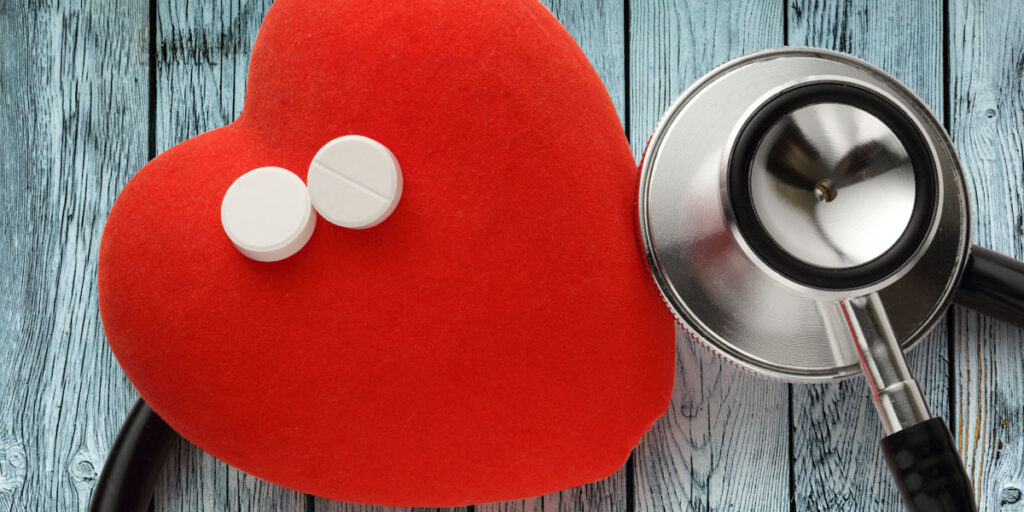
Heart Health: Who Should Take Aspirin and CoQ10
Megan Hwaszcz
Pharmacy Intern
How many of you can remember the saying an aspirin a day keeps the doctor away? Most of us can say yes within a few seconds. However, many of us don’t know that it may not be the case anymore. Previously, aspirin was either prescribed or self-prescribed to prevent heart attacks, stroke, or other cardiovascular events1,2. Recent studies have shown that it may be doing more harm than good. You may be asking yourself, wait I take a daily aspirin. But wait, this new recommendation does not apply to everyone.
These new findings do not apply to individuals who have history of heart disease, stroke, those who underwent bypass surgery, or those who had a stent placed1. Patients with diabetes and have at least one other heart disease risk may be started on a low dose aspirin by their healthcare provider2. If you fall into any of these categories, you should continue to take low-dose (81 mg) aspirin daily, or as recommended by your health care provider to prevent another event1.2. For healthy individuals, studies on taking a daily low-dose aspirin are not consistent so what is currently recommended is to avoid taking a low-dose aspirin as there is no clear benefit but rather more potential for harm; including but not limited to increased risk of bleeding1,2. If you fall into this category and feel like you could benefit from a low-dose aspirin, speak to your healthcare provider or local Price Chopper Pharmacist for more information.
If you are otherwise a healthy individual, you can protect yourself in other ways with healthy habits1. Three simple steps include eating a heart-healthy diet, participating in regular exercise, and controlling blood pressure and cholesterol1. Before taking a low dose aspirin, always ask your healthcare provider before starting!
Now onto the next heart health drug, CoQ10. Some of you may be thinking what is that? Coenzyme Q10, or CoQ10, is an antioxidant and natural substance found in your body with the highest amounts found in the heart, liver, kidneys, and pancreas3,4. Your body uses CoQ10 for growth and maintenance4. This is considered a dietary supplement and with dietary supplements, it is important to note that these are not federally regulated by the FDA.. There are many things that CoQ10 has been rumored to aid in; including the prevention of heart disease, reduction of heart failure symptoms, a decrease in high blood pressure, reducing the risk of complications after heart surgery, and reducing high cholesterol levels. Numerous studies have examined the effects of CoQ10 in these areas; however, were found to be inconclusive and unclear3.
Is CoQ10 safe to take? CoQ10 is assumed to be safe with few adverse effects4. It may be beneficial to treating conditions like congestive heart failure. But it is notably important to discuss with your healthcare provider before starting. With supplements, it is always important to ask your doctor or pharmacist before starting due to potential drug interactions. CoQ10 has a possible interaction with anticoagulants, like Coumadin or Jantoven, making them less effective and increasing the risk for a blood clot4.
Should you take CoQ10? If you fall into any of the categories listed above; high blood pressure, heart failure, recent heart attack, or heart disease, speak to your healthcare provider or local Price Chopper Pharmacist before starting to make sure it is safe for you to start!
References:
- Avoid daily aspirin unless your doctor prescribes it, new guidelines advise [Internet]. www.heart.org. 2020 [cited 26 August 2020]. Available from: https://www.heart.org/en/news/2019/03/18/avoid-daily-aspirin-unless-your-doctor-prescribes-it-new-guidelines-advise
- Should you take a daily aspirin for your heart? [Internet]. Mayo Clinic. 2020 [cited 26 August 2020]. Available from: https://www.mayoclinic.org/diseases-conditions/heart-disease/in-depth/daily-aspirin-therapy/art-20046797#:~:text=The%20U.S.%20Preventive%20Services%20Task,over%20the%20next%2010%20years.
- Coenzyme Q10 NIH [Internet]. Nccih.nih.gov. 2020 [cited 26 August 2020]. Available from: https://www.nccih.nih.gov/health/coenzyme-q10
- Coenzyme Q10 Mayo Clinic [Internet]. Mayo Clinic. 2020 [cited 26 August 2020]. Available from: https://www.mayoclinic.org/drugs-supplements-coenzyme-q10/art-20362602
